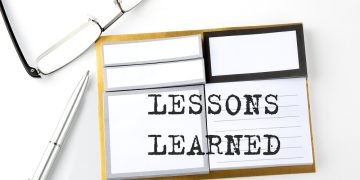Criticism—few experiences feel as jarring. It can be akin to having a bucket of cold water poured over your parade. And truly, no one enjoys a rain-soaked celebration. But what if, rather than retreating beneath the nearest umbrella, you chose instead to dance in the downpour?
Just as Gene Kelly and Debbie Reynolds did in ‘Singing in the Rain’—graceful, resilient, and completely undeterred. That’s the power of humor. It’s not just about getting a few laughs—it’s a mindset, a secret superpower that helps you deflect negativity, maintain your confidence, and build stronger connections.
So, how can we develop and harness this skill? Let us explore.
Lead with laughter, leave the stress behind
Imagine this scenario: you’re in a meeting, presenting with passion, when you completely butcher a key term. The old you might’ve blushed, apologized, or stammered your way out. But the version of you equipped with humor? You offer a light-hearted remark: “That was the beta version—patent pending.”
Tension? Diffused. Confidence? Unshaken.
Humor shows that you’re not shaken by small stumbles. It signals self-assurance, quick thinking, and approachability—qualities people gravitate toward.
When criticism strikes a nerve
Sometimes, feedback doesn’t feel so friendly. Maybe it targets something personal—your work, your clothes, your infamous lasagna recipe. Here’s where your wit becomes your shield. Instead of getting defensive, lean in.
“Oh, you think my lasagna is a culinary crime? Thank you, it’s my latest invention in experimental fusion cuisine.” By exaggerating the jab and turning it into a joke, you take control of the narrative. It shows you’re not just unfazed, but downright unflappable.
The art of the banter bounce-back
Not all teasing is mean-spirited. In social settings, light teasing can serve as a form of connection. Rather than rejecting it, you might choose to respond with humor and grace.
If someone pokes fun at your daring new haircut, a reply such as, “I was going for ‘bold visionary’—mission accomplished, wouldn’t you say?” not only defuses discomfort, but creates camaraderie.
These light-hearted exchanges don’t demand wit so much as warmth. They transform awkwardness into affinity.
Is humor a trainable reflex?
While some individuals appear to possess an innate comedic instinct, humor is very much a skill that can be cultivated. Consider the following practices:
- Ask: “Will this matter in five minutes? Five months?” If the answer is no, try laughing it off.
- Watch stand-up. Listen to comedy podcasts. Read humorous books: Immerse yourself in humor and let it influence your thinking.
- Keep a blunder journal: Record your funniest missteps and revisit them for laughs and perspective.
- Find a ‘laughter ally’: Someone who helps you see the funny in the frustrating. Share your oops moments—it doubles the joy and halves the sting.
- Start and end your day with a smile: Smiling tells your brain that joy is the default—not stress.
A powerful tool
Even in professional contexts, humor can work wonders. One executive coach recalls a client whose presentation stalled mid-slide. Instead of panicking, they said, “Looks like my slides are on a coffee break—just like we all need.” The audience erupted in laughter, and the presenter regained control—effortlessly.
Humor can also be a powerful tool for navigating criticism and defusing anger. Rather than reacting defensively to harsh words or judgmental comments, using humor allows you to flip the script and maintain control of the moment.
A witty remark, a playful jab, or a self-deprecating joke can turn a potential conflict into a shared laugh, disarming negativity and shifting the energy. Humor not only protects your peace of mind but can also build connection and confidence, transforming awkward blunders into memorable moments.
Like a mental judo move, laughter absorbs the blow and bounces it back lightly, keeping interactions light, human, and sometimes even heartwarming. Whether you’re laughing off a misstep at work or responding to a playful tease, approaching life with a “laugh track mindset” helps you stay resilient, relatable, and in charge of your emotional narrative.
Adopting a light-hearted mindset
Living this way doesn’t mean life is a joke. It means recognizing that not every flub is fatal. Not every critique is a catastrophe. Humor becomes a filter that softens the blow and sharpens your social grace.
Trip in public? Mispronounce a word? Forget someone’s name?
Instead of spiraling, ask yourself: Is this a disaster or just a future funny story in the making?
Chances are, it’s the latter.
A final thought
Life offers us more than enough weight. Choosing levity, when appropriate, is not avoidance—it’s strength.
When you meet critique with cleverness, respond to awkwardness with authenticity, and reframe missteps as stories worth sharing, you’re not just laughing—you’re leading with grace.
So go ahead. Give yourself permission to smile through the stumbles and laugh through the learning.
When you embrace humor, the little things become lighter—and the big things, more manageable.



































































